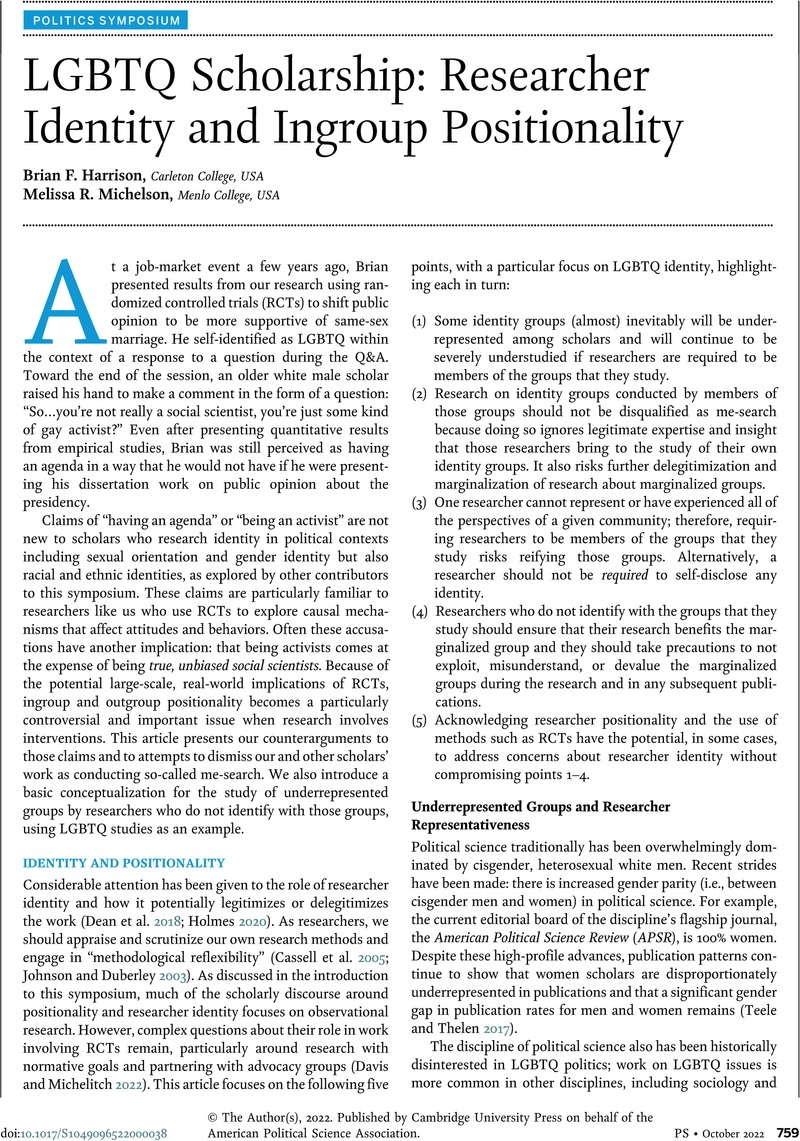Crossref Citations
This article has been cited by the following publications. This list is generated based on data provided by Crossref.
Haas, Nicholas
Haenschen, Katherine
Kumar, Tanu
Panagopoulos, Costas
Peyton, Kyle
Ravanilla, Nico
and
Sierra-Arévalo, Michael
2022.
Organizational Identity and Positionality in Randomized Control Trials: Considerations and Advice for Collaborative Research Teams.
PS: Political Science & Politics,
Vol. 55,
Issue. 4,
p.
749.
Kim, Eunji
Badrinathan, Sumitra
Choi, Donghyun Danny
Karim, Sabrina
and
Zhou, Yang-Yang
2022.
Navigating “Insider” and “Outsider” Status as Researchers Conducting Field Experiments.
PS: Political Science & Politics,
Vol. 55,
Issue. 4,
p.
754.





